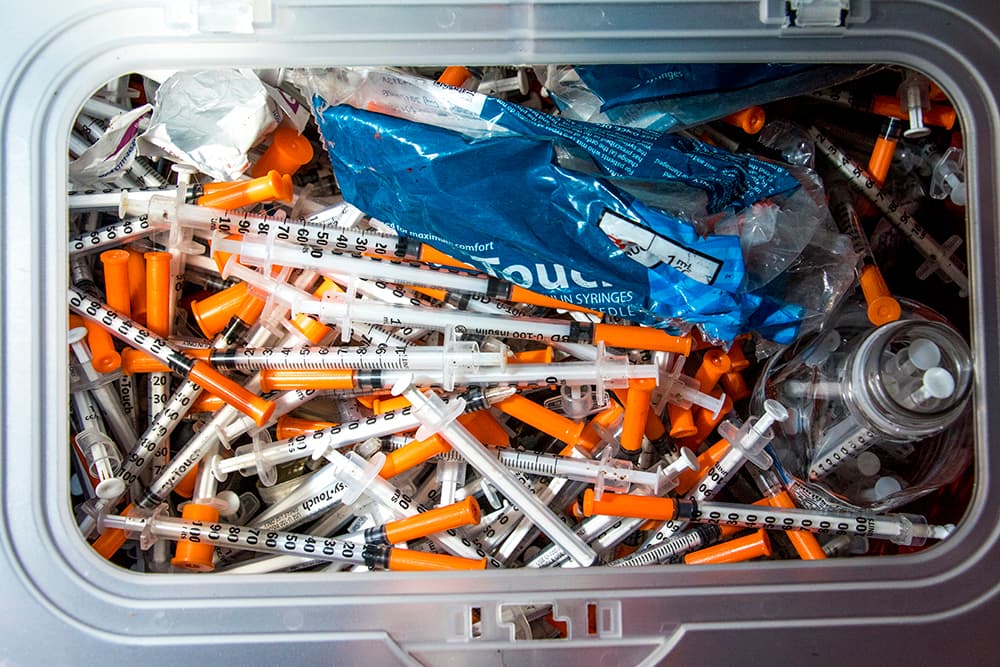
Mayor Michael Hancock's administration will send a delegation to Vancouver in January, where they will learn about organizations that aim to provide a safe place for the use of injected drugs.
The trip shows growing interest in the concept of supervised injection sites, which are part of the philosophy of "harm reduction." By providing clean needles and supervision, they may reduce the spread of diseases and stop overdose deaths.
"We acknowledge that Denver, like most other cities, have a growing opioid issue and we’re committed to doing all we can to help combat that problem," wrote mayoral spokeswoman Jenna Espinoza in an email to Denverite.
"Denver has not yet taken a position on (the legalization of these facilities) but are studying its implications now."
No city in the United States has allowed this kind of facility.
In Denver, the Harm Reduction Action Center on Colfax Avenue hopes to be among the first.
“It’s very counterintuitive but once you explain it to people, it makes sense," said Lisa Raville, executive director of the nonprofit, in an earlier interview with Erica. "This is the time we have to try. If it just saves one life, it’s worth it.”
Opening a supervised site would require the approval of both the Colorado legislature and the Denver City Council, according to supporters. The sites also remain illegal under federal law, although it's possible that the feds could look the other way, as they do with legal marijuana.
Council President Albus Brooks was among the first local leaders to express interest, leading an earlier trip to Vancouver to research the idea. He said he was motivated in part by the fact that he "got hooked on opioids," as he recovered from cancer surgery last year, he said.
The delegation on the trip will include Bob McDonald, the executive director of the Denver Department of Public Health and Environment. It's unclear what their research will entail; the itinerary hasn't yet been finalized, according to Hancock's office. Brooks may also join the trip.
The city dedicated more than $1 million for support services for opioid users in its current budget, Espinoza noted.
Correction: This article originally said that Hancock himself was going to Vancouver. His administration has not said he is going.












